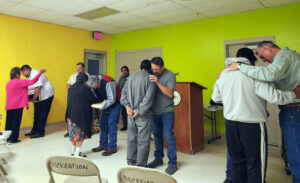
NASHVILLE (BP) — Millennials are less likely to marry by age 40 than any previous generation, the Urban Institute concluded in an assessment of data from the American Community Survey.
“The findings do not represent trivial facts, but rather a massive moral reorientation of our culture,” Heath Lambert, assistant professor of biblical counseling at Southern Baptist Theological Seminary in Louisville, Ky., said. “Couples that delay marriage will not also delay intimate relationships and sexual gratification. That means that this study portends increased rates of sex outside marriage, cohabitation, illegitimacy and pornography usage.”
The marriage rate has decreased from 91 percent of women age 40 being married in 1990 to a current 69.3 percent, according to the report. The rate for men is approximately 4 percent lower.
Evan Lenow, assistant professor of ethics at Southwestern Baptist Theological Seminary in Fort Worth, Texas, said the data reflect a decline in the “perceived value of marriage” over “the last several decades.”
“Marriage is no longer viewed as necessary for having children, attaining a particular social status or for career advancement,” Lenow said. “In addition, more young people are cohabiting prior to marriage — 60 percent of first marriages in the U.S. are preceded by cohabitation. When people participate in long-term cohabitation, the likelihood of actually getting married probably decreases.”
Although some Millennials — the generation born between 1980 and 2000 — perceive marriage to have little value, in reality it is important for human flourishing, Lenow said.
“Marriage is important to society for avoiding poverty, rearing children who are more likely to get an education and advancing in a career,” Lenow said. “Particularly for men, marriage typically brings what has been called the ‘marriage premium’ where married men with identical experience and education make more money than their single counterparts.”
The low marriage rate among Millennials will affect public policy related to tax rates, entitlement programs and government safety nets — “changes our nation can adapt to more successfully if it anticipates them,” according to the report.
Hispanics, blacks and those without a college education will experience the greatest decline in marriage rates, the report said. The marriage rates for college graduates will remain relatively steady, perhaps due to a propensity for young adults to marry after graduating from college.
The Urban Institute attributed the decline in marriage rates in part to America’s recent economic recession.
Lenow identified a deeper root.
“The cause of the decline in marriage is manifold, but one significant factor among Millennials is that so many of them grew up in homes impacted by divorce,” he said. “In an attempt to avoid the mistakes they saw in their parents’ marriages, many have swung the pendulum all the way over to avoid marriage entirely.”
David Jones, associate professor of Christian ethics at Southeastern Baptist Theological Seminary in Wake Forest, N.C., said “Christians need to be ready to meet the needs of what were called, prior to the age of political correctness, ‘broken families.'”
“Indeed, a child growing up without a married, committed and present mother and father is living in an arrangement that is broken from the biblical norm and creational design,” he said. “Such children will suffer emotionally, educationally and financially. Ministering to individuals will require more than fiscal policy changes and program adjustments.”
Followers of Jesus must get “personally involved in the lives of those in need,” Jones said. “No sin-caused distortion of marriage and family has ever been solved by throwing money at it. Real restoration and true meeting of needs occurs in the trenches where the work is dirty and hard, but eternally fulfilling.”
–30–
Myriah Snyder, who will be a senior at the University of the Cumberlands in Williamsburg, Ky., is a summer intern with Baptist Press. Get Baptist Press headlines and breaking news on Twitter (@BaptistPress), Facebook (Facebook.com/BaptistPress) and in your email (baptistpress.com/SubscribeBP.asp).
















